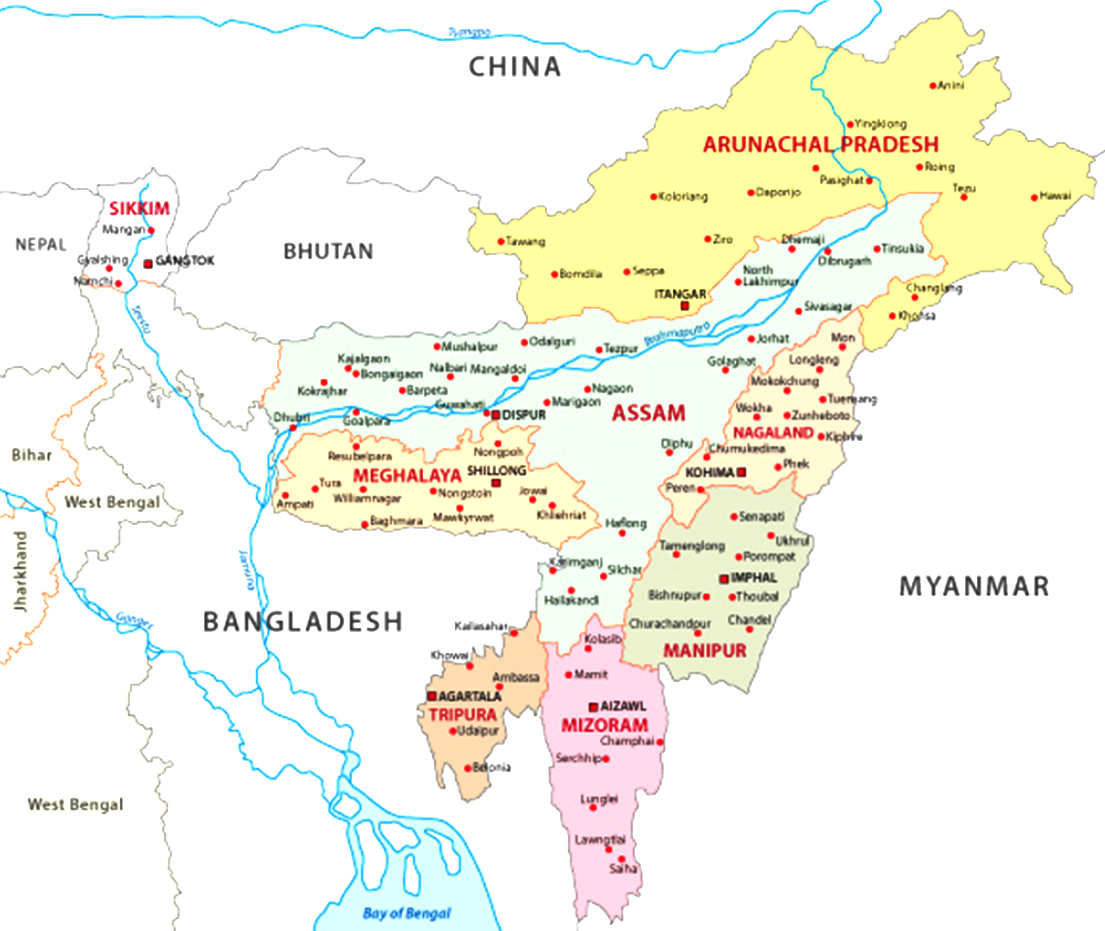Adivasi Group Agreement | 16 Sep 2022
For Prelims: North East India, Tribal Groups of Assam, Agreements for Peace in North East India
For Mains: Government Intervention in maintaining peace , Tribals of North East India
Why in News?
Recently, a historic agreement has been signed between the Government of India, Government of Assam and representatives of eight Armed Adivasi Groups.
- The agreement was signed to end the decades old crisis of Adivasis and tea garden workers in Assam.
What do we Need to Know about the Agreement?
- About:
- With the signing of this tripartite agreement, 1182 cadres of tribal groups of Assam have joined the mainstream by laying down arms.
- Aim:
- The agreement is intended to protect & strengthen the social, cultural, linguistic and community-based identity of the groups.
- It also aims to fulfill the political, economic and educational aspirations of the Adivasi groups.
- It also aims to ensure rapid and focused development of tea gardens along with Adivasi villages/areas throughout the state.
- Provisions of the Agreement:
- The agreement provides for the establishment of a Tribal Welfare and Development Council with a view to ensure speedy and focused development of tea gardens.
- The agreement also provides for rehabilitation and resettlement of armed cadres and measures for the welfare of tea garden workers.
- A special development package of Rs.1000 crore will be provided over a period of five years for infrastructure development in villages/areas with tribal population.
- Recent Figures regarding Insurgency:
- Since 2014, around 8,000 insurgents have joined the mainstream of society by laying down their arms.
- 2020 recorded the lowest number of insurgency incidents in the last two decades.
- In comparison to 2014, there has been a 74% reduction in the incidents of insurgency in 2021.
- In the same period, there has been a 60% reduction in the casualties of security forces and 89% in the number of civilian casualties.
What Efforts has the Government Taken for Peace in North East India?
- Agreements:
- NLFT Agreement 2019:
- National Liberation Front of Tripura (NLFT) has been banned under the Unlawful Activities (Prevention) Act, 1967 since 1997 and has been involved in violence, operating from their camps across the international border.
- NLFT Agreement 2019 resulted in the surrender of 88 cadres with 44 weapons.
- BRU-REANG:
- Bru or Reang is a community indigenous to Northeast India, living mostly in Tripura, Mizoram and Assam. In Tripura, they are recognised as a Particularly Vulnerable Tribal Group.
- A landmark agreement was signed on 16th January 2020 to resolve the 23-year-old Bru-Reang refugee crisis by which more than 37,000 internally displaced people are being settled in Tripura.
- Bodo Accord 2020:
- Bodos are the single largest community among the notified Scheduled Tribes in Assam.
- They have been demanding a Bodo state since 1967-68.
- To resolve the five-decade-old Bodo issue in Assam, Bodo Accord was signed on 27th Januay, 2020 resulting in the surrender of 1615 cadres with a huge cache of arms and ammunition at Guwahati on 30th January 2020.
- Bodos are the single largest community among the notified Scheduled Tribes in Assam.
- Karbi Anglong Agreement 2021:
- It was signed to resolve the long-running dispute in the Karbi regions of Assam in which more than 1000 armed cadres renounced violence and joined the mainstream of society.
- Assam-Meghalaya Inter-State Boundary Agreement 2022:
- AMISB Agreement 2022 was signed on 29th March 2022 to settle the dispute over six out of total twelve areas of interstate boundary dispute between the states of Assam and Meghalaya.
- NLFT Agreement 2019:
- Partial Withdrawal of AFSPA:
- The government of India, in April 2022, partially withdrew the Armed Forces Special Powers Act (AFSPA), 1958 from parts of three Northeast states namely Assam, Nagaland and Manipur.
UPSC Civil Services, Previous Year Questions (PYQ)
Q. Human rights activists constantly highlight the fact that the Armed forces (Special Powers) Act, 1958 (AFSPA) is a draconian act leading to cases of human rights abuses by security forces. What sections of AFSPA are opposed by the activists? Critically evaluate the requirement with reference to the view held by the Apex Court. (2015)

